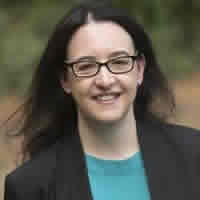By Daniel Stride
Alice punched the numbers.
“121 trillion. Quite a lot.”
The man on the park bench looked over her shoulder, and smiled.
“You still underestimate by a factor of a thousand.”
Misread the zeroes. Damn contact lenses. Alice shoved the calculator back into her coat pocket. “So even if your ringers spent centuries at it — millennia — they would only cover a fraction of the possible permutations.”
“Indeed. To ring the extent of nineteen bells, every permutation as you call it, would take some two billion years.”
“So they can't possibly do it.”
The fellow nodded across the lawn towards the bell-tower.
“Listen. They are doing it right now.”
Alice paused. The clanging song continued apace, each change of the bells mellow and melancholy, yet also subtly different from its predecessor.
“How long have they been at it?”
“Some time.”
It's like interviewing that M.P. “How long?”
“Less than two billion years, or they would have finished.”
Alice picked her pad and pencil off the bench, and scribbled a note. She needed a drink.
“Returning to the original question, what is the purpose of this strange exercise in campanology? What do you hope to achieve?”
“There are many purposes, mostly aesthetic. I understand my methods are unconventional.”
“And supernatural. Your bell-ringers neither eat nor sleep.”
“As you say.”
Alice thinned her lips. “Let us take this in a different direction. These bells are magical, and their purpose is either benign or malevolent.”
He laughed. “They are purely benign. How could anything this elegant be malevolent?”
“This has been going on for an unnatural length of time.”
“All lengths of time are natural.”
“Even two billion years?”
“Even two billion years.”
Two can play this game. “Is this experiment's duration closer to the end of that mark?”
That rattled him: a slight twitch of the cheek, a flutter of the eyelids.
“I couldn't possibly comment.”
“To hazard a hypothesis...” Alice drew a deep breath. Down the rabbit hole. “Two billion years ago is when cells with internal organs appeared, paving the way for what came after. Is there a link between these magical bells, and the existence of higher lifeforms on this planet? Is your experiment about sustaining life itself?”
She expected either a bark of laughter, or some nervous denial. Instead he merely shrugged.
“We must wait until they are finished.”
“Pardon?”
“If the bells sustain life, life shall end when the ringing ends. Assuming causation, and not mere correlation.”
Alice frowned. “Can't you stop the ringing to check?”
That did elicit laughter. “I could. But if life suddenly stopped, being right would be cold comfort.”
Alice scribbled another note. “Then perhaps another benign supernatural purpose. Do the bells protect us from enemies? Demons? Hostile space aliens?”
“A most interesting hypothesis.”
The man stood, and smoothed his shabby jacket. Then he crossed the lawn, and fetched a small stone from the rock garden.
“What if this protected the earth from demons and space aliens?” he said, as he resumed his seat on the bench. “Rather than the bells.”
Alice took the stone from him. “But it's just a rock. It doesn't protect anything.”
“And those bells are just copper and tin alloy, in varying percentages. Yet you ascribe miraculous properties to them.”
“The bells are demonstrably magical. This isn't.”
“The only magic you have identified is that the ringers neither eat nor sleep. Otherwise, the bells' non-aesthetic attributes are no different from those of that stone.”
Alice put the stone down on the grass.
“Very well,” she said. “Do the bells possess any malevolent properties?”
“Care to suggest any?”
Alice bit her lip. “The peal does not kill those who hear it, so it can't be that.”
The twinkle had returned to the man's eye. “A sound observation.”
“Maybe it causes insanity though.” It would explain much.
More laughter. “My dear girl, the people of this village have listened to the bells all their lives. Do they appear mad to you?”
“No, but... perhaps the bells lure in new victims, and turn them into eternal bell-ringers.”
“Do you feel an unnatural urge to swap journalism for campanology?”
“Not particularly.”
“Did any of the bell-ringers look distressed when you passed through the chamber?”
“Not that I saw.”
“Then if the bells are malevolent lures, they are very poor at their job.”
Alice shut her note-pad, and stuffed it into her pocket. “That's all my questions. Thank you for your time.”
The man cocked his head. “Are you quite sure?”
“Well...” One question still lingered on the tip of her tongue. “Are you God? Or a god?”
“Quite the step up in speculation.” He flashed a toothy grin. “Godhood would be a surprise, given that I am the exact opposite.”
***
The man sat on the bench, eyes shut, his ears filled with the wondrous peal.
“She never did ask if I enjoyed the music,” he said.
![]()
About the Author
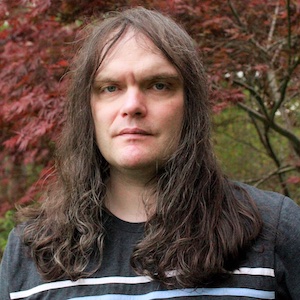 Daniel Stride has a lifelong love of literature in general, and speculative fiction in particular.
Daniel Stride has a lifelong love of literature in general, and speculative fiction in particular.
He writes both short stories and poetry; his first novel, Wise Phuul, was published in 2016 by small UK press, Inspired Quill.
A sequel, Old Phuul, is due out in the near future.
He likes chocolate and cats, and can be found blogging about the works of Tolkien (among other things) at <https://phuulishfellow.wordpress.com/>.
Daniel lives in Dunedin, New Zealand.



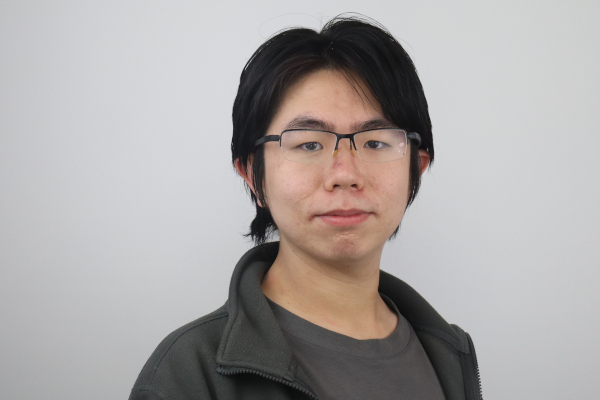

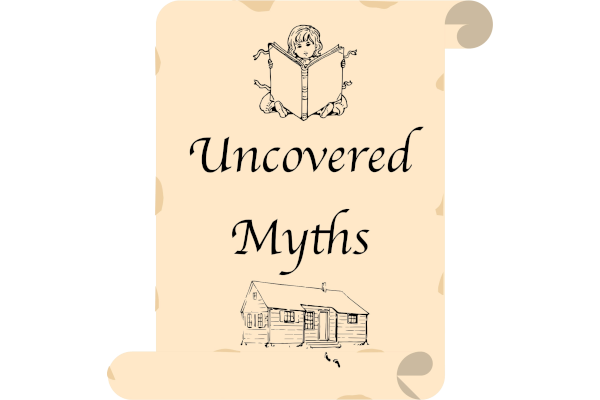

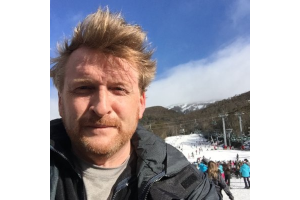


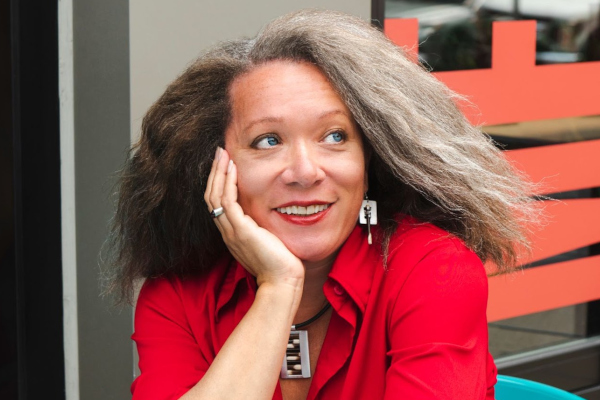

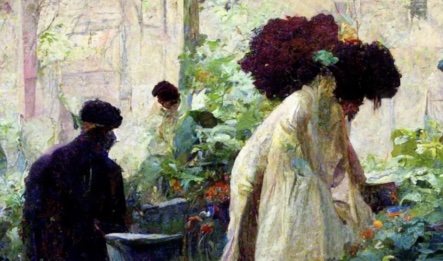

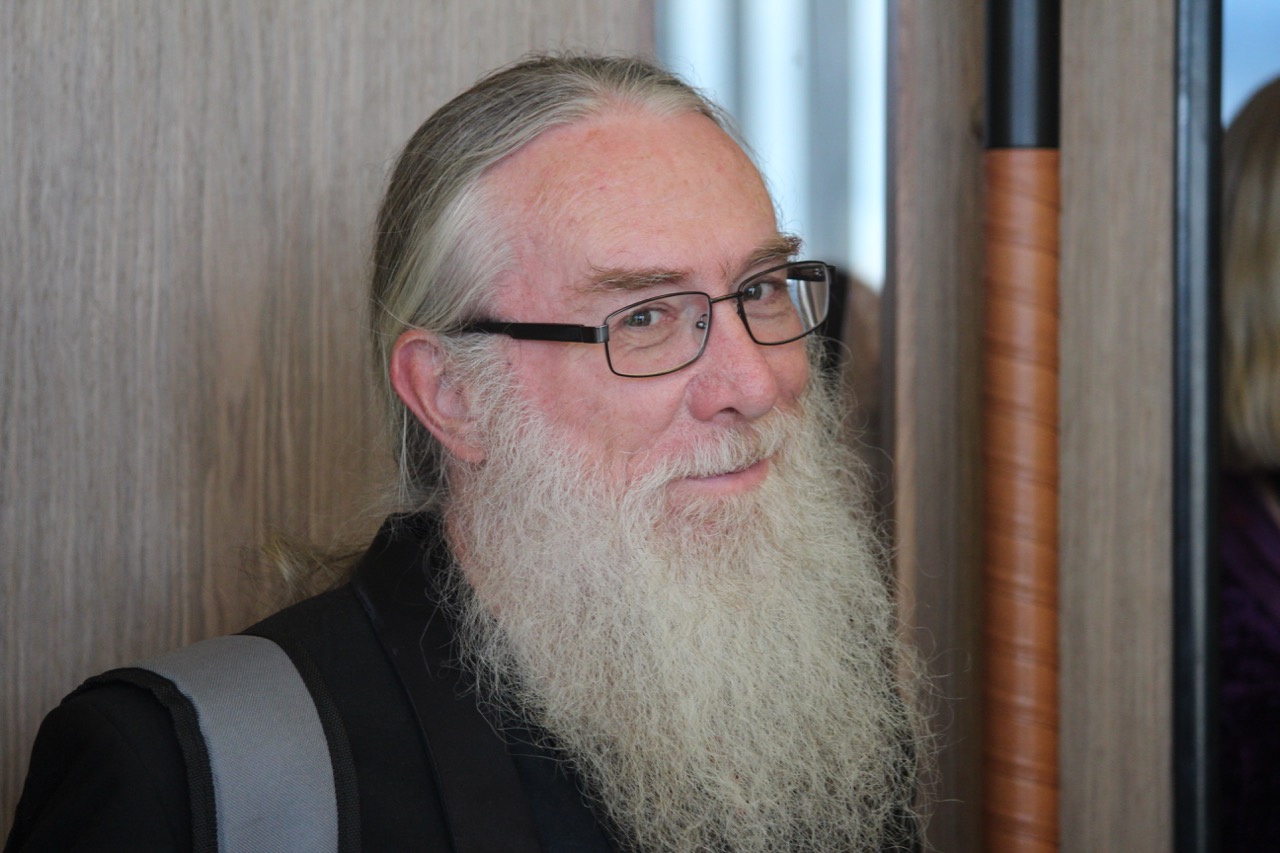
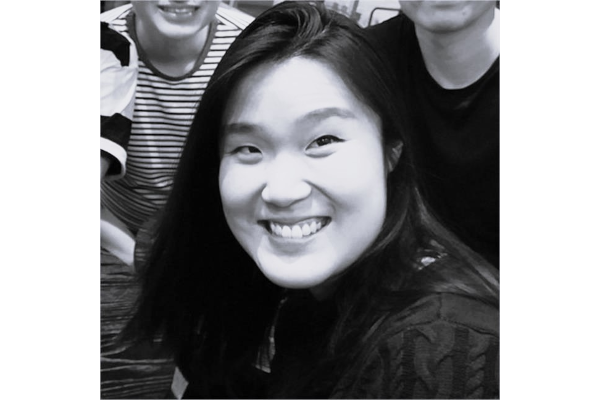


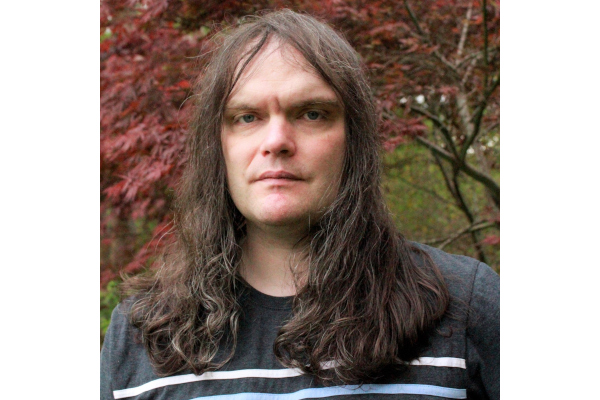
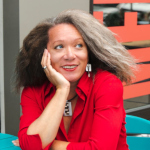 Tara Campbell is an award-winning writer, teacher, Kimbilio Fellow, fiction co-editor at Barrelhouse, and graduate of American University's MFA in Creative Writing.
Tara Campbell is an award-winning writer, teacher, Kimbilio Fellow, fiction co-editor at Barrelhouse, and graduate of American University's MFA in Creative Writing.
 Sarah Jane Justice is an Adelaide-based fiction writer, poet, musician and spoken word artist.
Sarah Jane Justice is an Adelaide-based fiction writer, poet, musician and spoken word artist.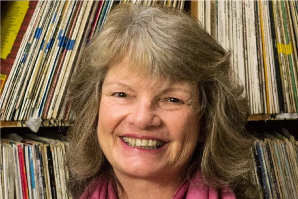 My time at Nambucca Valley Community Radio began back in 2016 after moving into the area from Sydney.
My time at Nambucca Valley Community Radio began back in 2016 after moving into the area from Sydney.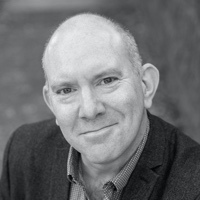 Alistair Lloyd is a Melbourne based writer and narrator who has been consuming good quality science fiction and fantasy most of his life.
Alistair Lloyd is a Melbourne based writer and narrator who has been consuming good quality science fiction and fantasy most of his life.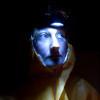
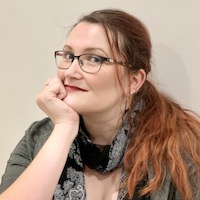 Emma Louise Gill (she/her) is a British-Australian spec fic writer and consumer of vast amounts of coffee. Brought up on a diet of English lit, she rebelled and now spends her time writing explosive space opera and other fantastical things in
Emma Louise Gill (she/her) is a British-Australian spec fic writer and consumer of vast amounts of coffee. Brought up on a diet of English lit, she rebelled and now spends her time writing explosive space opera and other fantastical things in Ed lives with his wife plus a magical assortment of native animals in tropical North Queensland.
Ed lives with his wife plus a magical assortment of native animals in tropical North Queensland.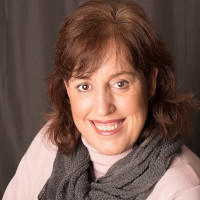 Geraldine Borella writes fiction for children, young adults and adults. Her work has been published by Deadset Press, IFWG Publishing, Wombat Books/Rhiza Edge, AHWA/Midnight Echo, Antipodean SF, Shacklebound Books, Black Ink Fiction, Paramour Ink Fiction, House of Loki and Raven & Drake
Geraldine Borella writes fiction for children, young adults and adults. Her work has been published by Deadset Press, IFWG Publishing, Wombat Books/Rhiza Edge, AHWA/Midnight Echo, Antipodean SF, Shacklebound Books, Black Ink Fiction, Paramour Ink Fiction, House of Loki and Raven & Drake Mark is an astrophysicist and space scientist who worked on the Cassini/Huygens mission to Saturn. Following this he worked in computer consultancy, engineering, and high energy research (with a stint at the JET Fusion Torus).
Mark is an astrophysicist and space scientist who worked on the Cassini/Huygens mission to Saturn. Following this he worked in computer consultancy, engineering, and high energy research (with a stint at the JET Fusion Torus).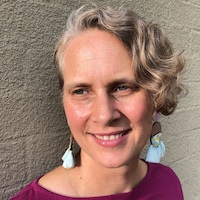 Merri Andrew writes poetry and short fiction, some of which has appeared in Cordite, Be:longing, Baby Teeth and Islet, among other places.
Merri Andrew writes poetry and short fiction, some of which has appeared in Cordite, Be:longing, Baby Teeth and Islet, among other places.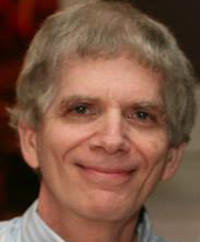 Barry Yedvobnick is a recently retired Biology Professor. He performed molecular biology and genetic research, and taught, at Emory University in Atlanta for 34 years. He is new to fiction writing, and enjoys taking real science a step or two beyond its known boundaries in his
Barry Yedvobnick is a recently retired Biology Professor. He performed molecular biology and genetic research, and taught, at Emory University in Atlanta for 34 years. He is new to fiction writing, and enjoys taking real science a step or two beyond its known boundaries in his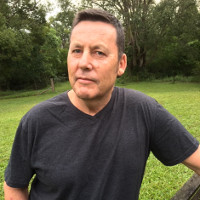 Tim Borella is an Australian author, mainly of short speculative fiction published in anthologies, online and in podcasts.
Tim Borella is an Australian author, mainly of short speculative fiction published in anthologies, online and in podcasts.